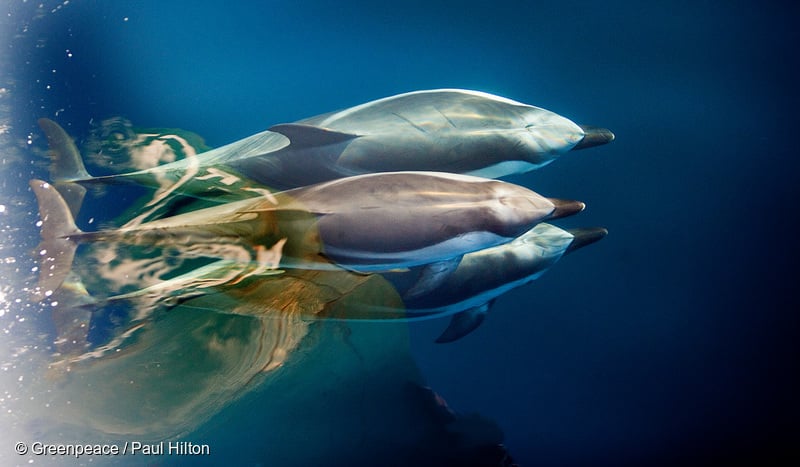A group of activists on board Greenpeace’s ships are voyaging across every ocean to uncover threats to marine life and call for a third of the world’s oceans to be protected by 2030, a target scientists say is critical in order to safeguard wildlife and mitigate the impacts of the climate crisis. Across every ocean, they saw marine life thriving in their environment, but also endangered animals threatened by fishing, pollution and other damaging human impacts.
For species like whales, turtles, sharks and seabirds, which undertake migrations across huge distances, climate breakdown represents a huge threat on top of many they already face. Travelling thousands of miles, these animals might have little chance of survival if their feeding and breeding grounds have changed or totally disappeared because of warming oceans.
The impacts on marine species are much harder to see and quantify than for animals on land, yet it’s known that 90% of large predatory fish have disappeared in recent decades. Scientists estimate that one in three species of open-ocean sharks and rays are endangered; including many of the biggest species – like giant manta rays, the giant hammerhead and whale sharks. A recent study showed that shark populations have declined by as much as 70% over the past 50 years. The situation is no less concerning for marine turtles: six out of seven of them are under threat, with three species classed as vulnerable and three as endangered.
The oceans are not just a victim of the climate crisis, they are also a key part of the solution. They help to take carbon out of the atmosphere and healthy oceans that are full of life can help store more of this carbon away safely in our oceans, rather than heating our planet.
On this Endangered Species Day, these dramatic images show what’s at stake and why we urgently need to protect our blue planet.

From climate change and plastics, to deep sea mining and overfishing – the threats facing our oceans are growing and becoming more urgent by the day. Here’s how we protect them.
